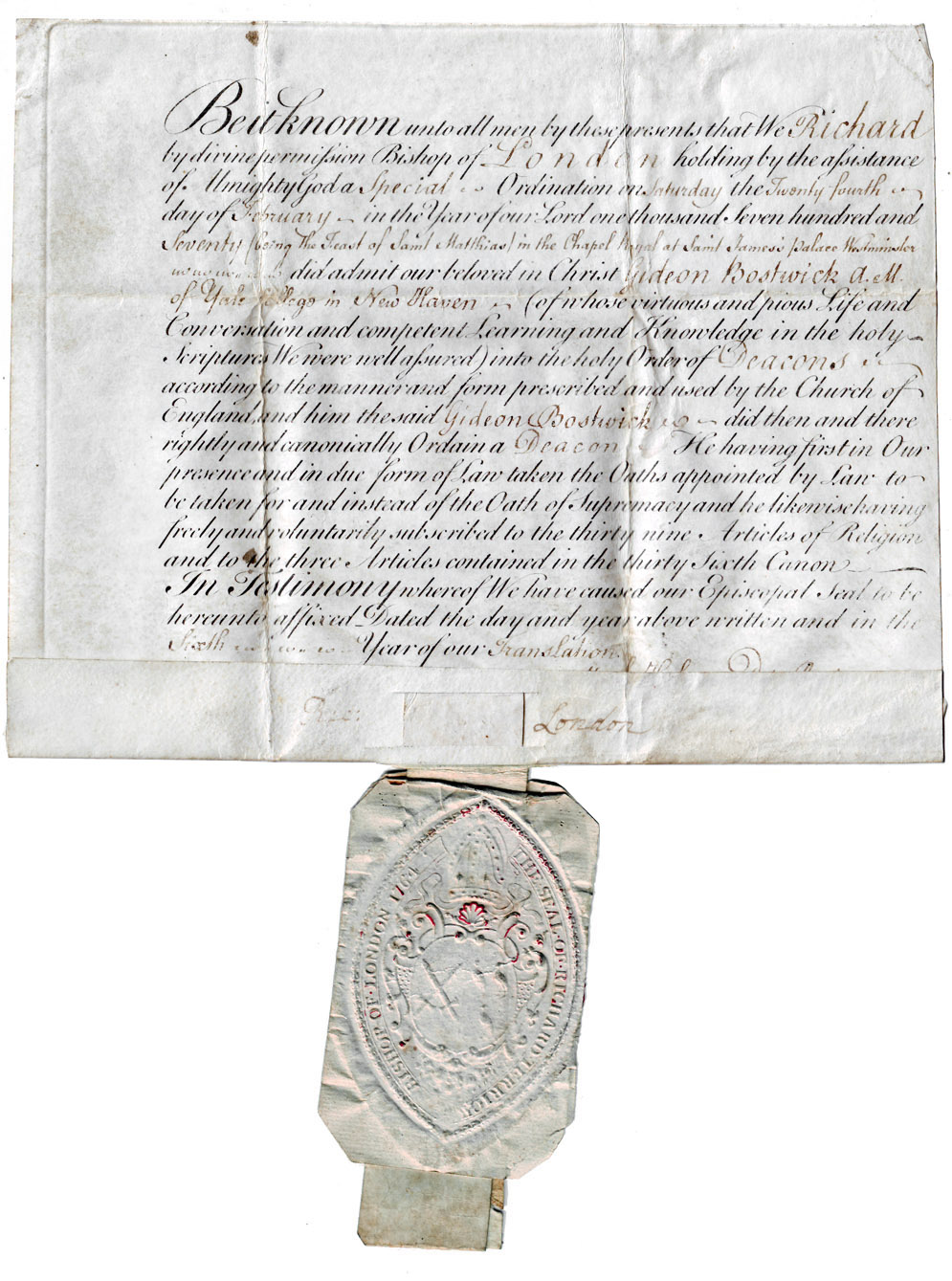Richard Terrick on:
[Wikipedia]
[Google]
[Amazon]
Richard Terrick (baptised 20 July 1710 – 31 March 1777) was a
 He was preacher at the Rolls Chapel from 1736 to 1757,
He was preacher at the Rolls Chapel from 1736 to 1757,
Church of England
The Church of England (C of E) is the established Christian church in England and the mother church of the international Anglican Communion. It traces its history to the Christian church recorded as existing in the Roman province of Britain ...
clergyman who served as Bishop of Peterborough 1757–1764 and Bishop of London
A bishop is an ordained clergy member who is entrusted with a position of authority and oversight in a religious institution.
In Christianity, bishops are normally responsible for the governance of dioceses. The role or office of bishop is ca ...
1764–1777.
Life
Terrick was born in York, the eldest son of Samuel Terrick, rector ofWheldrake
Wheldrake is a village and civil parish located south-east of York. Administratively it is in the unitary authority of the City of York in North Yorkshire, England. According to the 2001 census the parish had a population of 1,909, increasing t ...
and residentiary canon of York Minster
The Cathedral and Metropolitical Church of Saint Peter in York, commonly known as York Minster, is the cathedral of York, North Yorkshire, England, and is one of the largest of its kind in Northern Europe. The minster is the seat of the Arch ...
. He was the great-grandson of Samuel Terrick
Samuel Terrick (c. 1602 – 1675) was an English politician who sat in the House of Commons at various times between 1645 and 1660.
Terrick was the second son of John Terrick of Clayton Griffin and his wife Jane Leigh, daughter of John Leig ...
. Terrick was educated at Clare College, Cambridge
Clare College is a constituent college of the University of Cambridge in Cambridge, England. The college was founded in 1326 as University Hall, making it the second-oldest surviving college of the University after Peterhouse. It was refound ...
, graduating BA in 1729 ( MA in 1733) and DD in 1747.
 He was preacher at the Rolls Chapel from 1736 to 1757,
He was preacher at the Rolls Chapel from 1736 to 1757, Chaplain to the Speaker of the House of Commons
The Chaplain to the Speaker of the House of Commons, also known as the Speaker's Chaplain, is a Church of England priest who officiates at services held at the Palace of Westminster and its associated chapel, St Mary Undercroft. The Chaplain a ...
from 1739 to 1742, Canon of the fourth stall at St George's Chapel, Windsor Castle
St George's Chapel at Windsor Castle in England is a castle chapel built in the late-medieval Perpendicular Gothic style. It is both a Royal Peculiar (a church under the direct jurisdiction of the monarch) and the Chapel of the Order of the Gart ...
from 1742 to 1749, and vicar of Twickenham
Twickenham is a suburban district in London, England. It is situated on the River Thames southwest of Charing Cross. Historically part of Middlesex, it has formed part of the London Borough of Richmond upon Thames since 1965, and the boroug ...
from 1749. He was appointed Bishop of Peterborough in 1757 through the influence of the Duke of Devonshire, the then Prime Minister, but subsequently transferred his allegiance to the Earl of Bute
Marquess of the County of Bute, shortened in general usage to Marquess of Bute, is a title in the Peerage of Great Britain. It was created in 1796 for John Stuart, 4th Earl of Bute.
Family history
John Stuart was the member of a family that ...
. He was promoted to the bishopric of London
London is the capital and largest city of England and the United Kingdom, with a population of just under 9 million. It stands on the River Thames in south-east England at the head of a estuary down to the North Sea, and has been a majo ...
in 1764, also joining the Privy Council
A privy council is a body that advises the head of state of a state, typically, but not always, in the context of a monarchic government. The word "privy" means "private" or "secret"; thus, a privy council was originally a committee of the mon ...
''ex officio''. He declined the archbishopric of York
York is a cathedral city with Roman origins, sited at the confluence of the rivers Ouse and Foss in North Yorkshire, England. It is the historic county town of Yorkshire. The city has many historic buildings and other structures, such as a ...
in 1776 on the grounds of ill health, dying on Easter Monday 1777.
Horace Walpole, who disliked Terrick, said he lacked ability, save "a sonorous delivery and an assiduity of backstairs address". On the other hand, Alexander Carlyle
Alexander Carlyle MA DD FRSE (26 January 172228 August 1805) was a Scottish church leader, and autobiographer. He served as Moderator of the General Assembly of the Church of Scotland in 1770/71.
Life
He was born on 26 January 1722 in the m ...
thought him "a truly excellent man of a liberal mind and excellent good temper" and "a famous good preacher and the best reader of prayers I ever heard".
Attribution
*References
1710 births 1777 deaths Alumni of Clare College, Cambridge Bishops of London Deans of the Chapel Royal Bishops of Peterborough Chancellors of the College of William & Mary Canons of Windsor Chaplains of the House of Commons (UK) Burials at All Saints Church, Fulham 18th-century Church of England bishops {{ChurchofEngland-bishop-stub